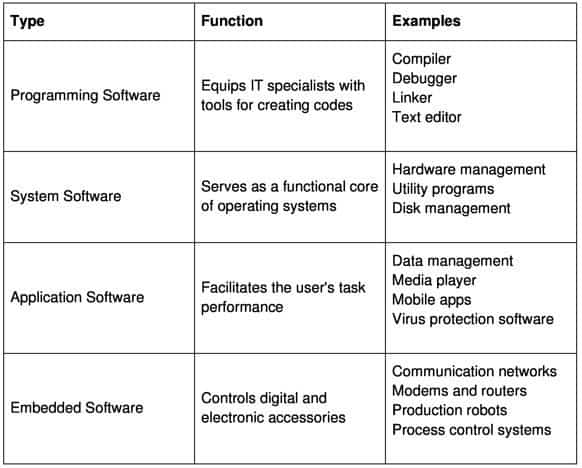Featured image by ZinetroN
Since our world has been completely computerized, well-designed software is a key ingredient of any successful business venture. Proper software development will help you achieve your commercial goals more constructively, more quickly, and with lower investments of money and effort.
RELATED ARTICLE: STARTING YOUR OWN BUSINESS? HERE’S WHAT YOU’LL NEED
In this post, we explain the basic concepts of software development to highlight its significance for commercial ventures. However, this technology requires knowledge, skill, and experience. Therefore, unless you are an expert in the field, you must outsource the task. To this end, find a highly professional company that will help you build the best software solutions for your specific business purposes. For instance, you may consider Airdev, as it is a renowned bubble agency. Airdev utilizes bubble as their preferred visual programming language because of its no-code capability and fully customizable platform. They have worked alongside small and large companies, creating quality software products in less time and at a lower expense.
Techstack, for instance, covers the entire spectrum of software development. This includes UI and UX designs, back-end development, mobile applications, software testing, and quality analysis. In addition, its professionals have years of experience in catering for all types of businesses, from private startups to multi-national corporations. Moreover, they develop a product from A to Z, fully customizing it to the client’s unique organizational and operational needs.
The Basic Nature of Software Development
Essentially, software development involves numerous tasks related to the creation and maintenance of computer application programs, frameworks, and other software elements. The most common tasks include the initial conception, provisional specifications, and final implementation of software designs. It also includes software testing, documentation, and troubleshooting.
However, different business projects require different methodologies. For example, a developmental strategy that works well for one type of company may turn out to be totally detrimental to another. Therefore, the ultimate decision concerning the optimal software design will depend on the organizational, technical, marketing, and HR aspects of a particular enterprise.
This is why professional software development involves a considerable amount of research, close coordination with other departments in the client company, and constant modification work. And since, under normal conditions, marketing as well as macroeconomic factors remain in a constant state of flux, no software product should ever be considered as final.
Types of Software
There are four most common types of computer programs used by commercial organizations, as shown in the table below:

Stages of Software Development
There are many developmental theories and models, and your choice will ultimately depend on the nature of your enterprise, as well as on your short-term and long-term objectives. Nevertheless, all of them go through seven interrelated yet distinct stages, which we will briefly explain in this section. There is abundant empirical evidence that the following sequence is an optimal strategy for most types of software development.
1. Analytical Research and Planning
This phase of software development typically involves:
- Coordinating the development project with other departments in your company to fit it coherently into your global business aspirations and needs
- Assessing available resources and allocating them constructively
- Establishing a timeframe for the project
- Estimating the required investments to make the project as realistic and cost-effective as possible
2. Technical Considerations in Software Development
The most pertinent questions at this stage of software development include:
- Which problems need to be addressed
- What information is required for these purposes
- Who will be using the software in question and why
- Which additional accessories and tools need to be integrated
- What security measures will be necessary in the process
3. Design Specifications and Prototyping
Essentially, this part of the software development project is concerned with the issues of:
- Functionality
- Aesthetic appeal
- Operational flow
- Optimal complexity of the required wireframes
- User feedback channels
4. Actual Software Development
This is the most tedious as well as the riskiest yet immensely important part of any software development project. It is a lot more monotonous than the previous stages, and not as exciting as the ones that follow. Nevertheless, none of the stages in the sequence is of any use if no product is developed in the end. Moreover, only highly professional developers are capable of maintaining the level of concentration required for this part of the job.
5. Software Testing
Actually, testing takes place continuously throughout the process. So we could say that at this stage, the developers have a grand rehearsal and perform massive bug tracking.
6. Implementation and Troubleshooting
Now it is time to actually deploy the product and see it in action in real time. This stage also requires close coordination with the marketing and sales departments.
7. Supervision and Modification
No product is ever final: Customer expectations, economic conditions, and business aspirations change constantly. The developers must monitor these changes to update their software accordingly.
RELATED ARTICLE: REDUCE COSTS FOR PRODUCT DEVELOPMENT IN 4 WAYS
Conclusion
Needless to say, there is a lot more you should know about the subject before you attempt to perform the job yourself. We have only meant to provide a brief introduction to the field, as well as highlight the significance and complexity of proper software development.
Fortunately, there are plenty of professional and reputable development companies that can do the entire job for you, starting from scratch and covering all the essential components of the task. Moreover, their services will not stop at that. They will continue to monitor and upgrade their products to constantly facilitate and enhance your business activity, and all that for competitive and perfectly affordable fees.
RELATED ARTICLE: PRODUCT PROTOTYPE: MOST COMMON MISTAKES STARTUPS MAKE
